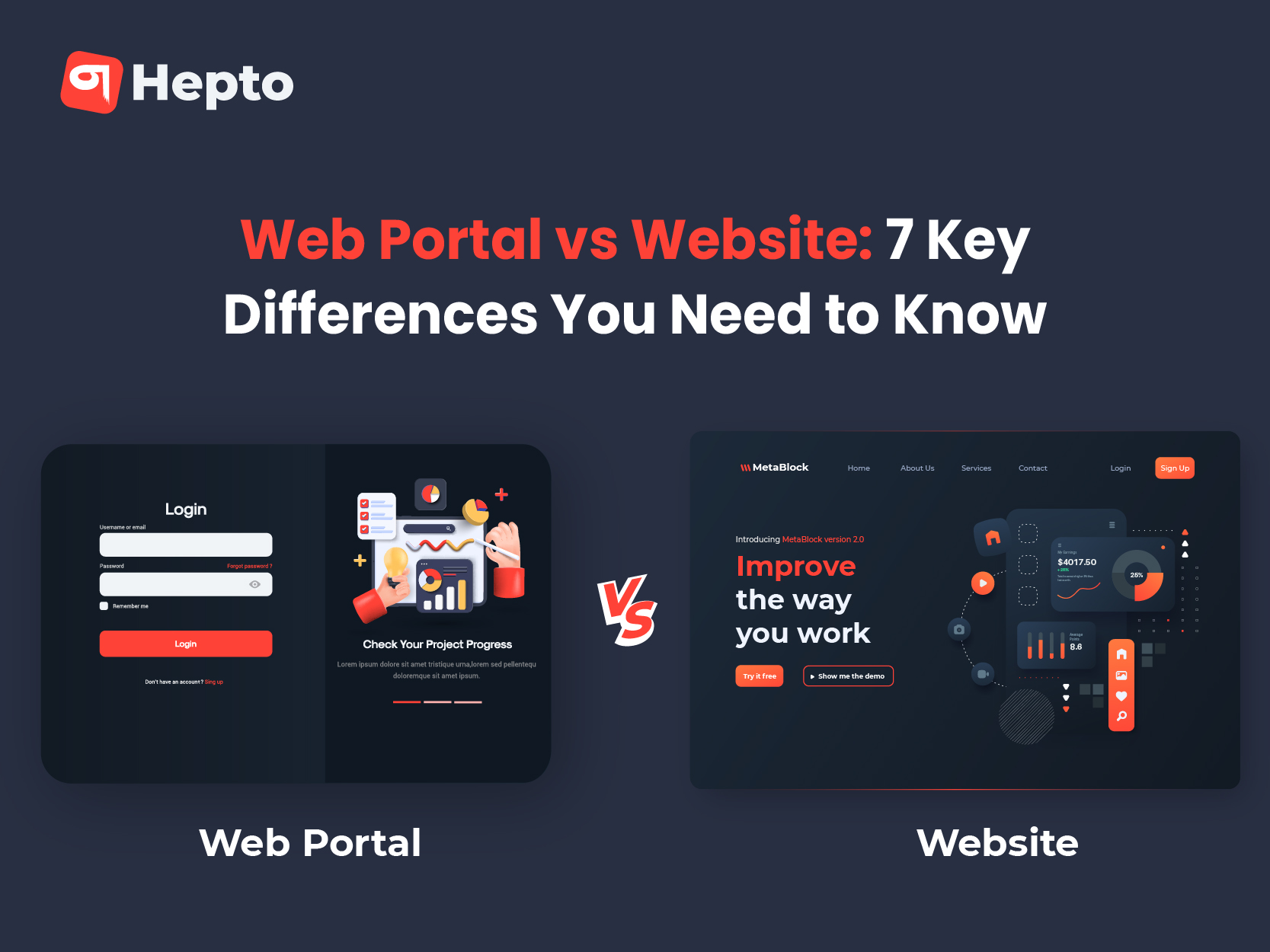Web Portal vs Website: 7 Key Differences You Need to Know
The distinction between a website and a web portal can frequently be seen in today's interconnected world, where having an online presence is critical for business significance. Despite their common usage, both websites and web portals serve different purposes for different users. Let us explore the major differences between a website and a web portal is crucial when making decisions for your business.
This blog also makes it easier for you to make decisions by providing advice on when to choose a website or a web portal.
Let's begin our blog by explaining what a website and a web portal are.
What is a Website?
A website is a collection of linked web pages that are hosted on the Internet under a single domain name. When a browser with a special URL (uniform resource locator) accesses it, it functions as a digital address where individuals, businesses, and organizations share information, interact with users, and provide a variety of features, services, and content on a collection of web pages.
Several well-known websites include Wikipedia, Facebook, and Amazon.
What is a Web Portal?
A web portal gives users unified access to a wide range of information, services, and resources from various sources, acting as their single point of contact. Its purpose is to offer a cohesive and well-structured point of entry that enables seamless communication with an array of web applications and services.
Some of the well-known web portals include Yahoo!, MSN, and AOL, which effectively combine a variety of services like email, entertainment, and news under one virtual roof.
7 Key Differences of Web Portal vs Website
To obtain a thorough understanding of these two platforms, explore the key differences between a website and a web portal.
Purpose and Functionality:
Website:
The website serves as an online platform for sharing content, information, products, or services with an online audience. It could be an e-commerce platform, a business website, or an online publication.
Web Portal:
The Web Portal serves as a comprehensive platform that gives users access to a wide variety of resources, services, and data. Portals frequently compile information and offerings from different sources.
Scope of Access:
Website:
Usually open to the public, it provides information to visitors without requiring user authentication. It incorporates user authentication for features like comments, memberships, etc.
Web Portal:
It usually requires user authentication, providing a personalized experience based on individual profiles, and ensuring that users access customized content and services.
Services and Content:
Website:
Generally, it concentrates on particular products or content associated with a theme or subject.
Web Portal:
Integrates numerous services, data, and assets from various sources. This would provide users with a single hub for email, news, entertainment, and other services.
User Interaction:
Website:
Websites offer forms, comments, subscriptions, and user accounts for interactivity; they usually don't offer as much customization or interaction as portals.
Web Portal:
With interactive features like role-based access, personalized content, and user authentication made possible by web portals, users can customize their experience.
Content Variety:
Website:
Typically, websites focus on particular informational content categories or types, like blogs, eCommerce platforms, portfolios, and informational content.
Web Portal:
Web portals are extremely adaptable platforms that can include forums, email, and news.
Customization:
Website:
Generally static, with limited options for personalization. The content is standardized for all users.
Web Portal:
The Web Portal offers dynamic content and customization options based on user preferences. Users can often personalize their portal experience to suit their needs.
Examples:
Website:
A few types of websites are blogs, informational sites, and e-commerce platforms that offer particular products or content.
Web Portal:
Well-known examples are Yahoo!, MSN, and AOL, combine a range of services like email, news, and entertainment to provide users with a single point of access.
5 Key Benefits of Developing a Website for Your Business
- Digital Presence
- Global Reach
- Marketing Platform
- Customer Engagement
- Increased Credibility
5 Key Benefits of Developing a Web Portal for Your Business
- Enhanced Interaction
- Improved Accessibility
- Streamlined Operations
- Increased Efficiency
- Enhanced Business Visibility
Conclusion
Are you still having difficulties deciding between websites and web portals? Allow Hepto Technologies, the top web development company in USA, to assist you in making decisions. We offer experience in creating web applications for a variety of industries, including eHealth portals, e-commerce websites, and technology platforms. We are aware of the difficulties in choosing the best platform. Get in touch with us to create the ideal web solution for your business. Schedule a free consultation today to validate your web idea at no cost.
